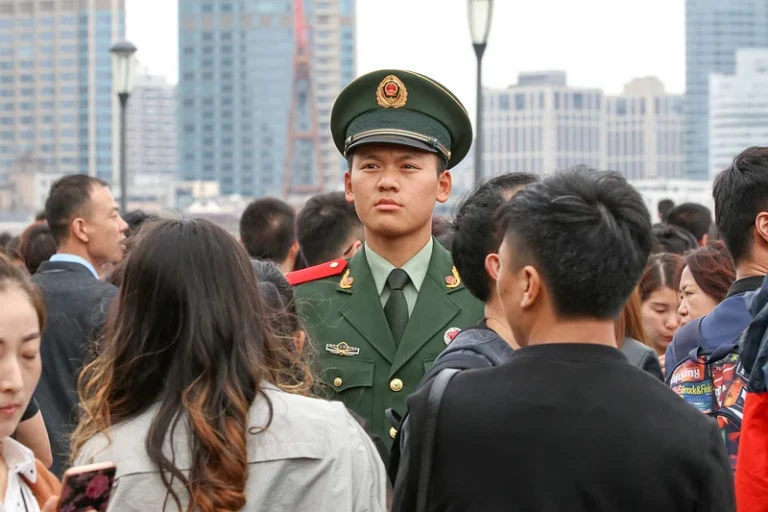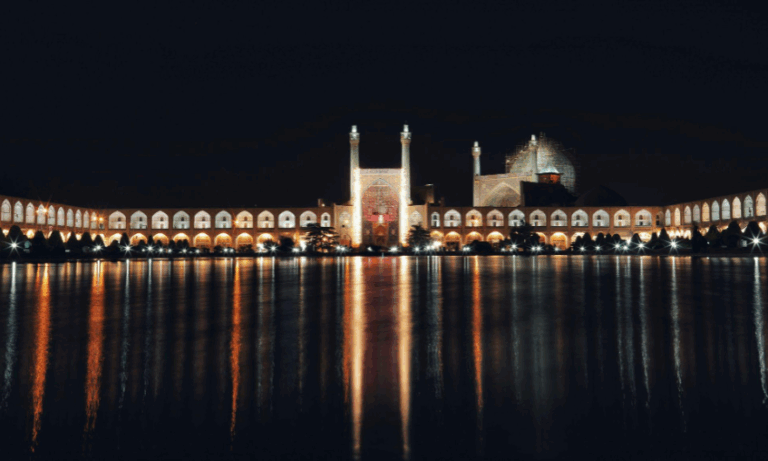How Will Finland-China Relations Change in a New Security Environment?

Finland has traditionally approached China from a pragmatic perspective of economic cooperation. However, the growing awareness of China’s human rights issues, potential security risks, China-Russia strategic alignment, as well as the impending NATO membership are moving Helsinki to reconsider the relationship.
This article is part of a series of articles authored by young, aspiring China scholars under the Future CHOICE initiative.
Recent years have seen a surge in Finnish media and political attention toward China, which was for a long time approached primarily from a trade and investment perspective. Broader foreign policy goals such as human rights and democracy promotion used to take a back seat in the public discourse and a rising China, beyond its economic impact, was not seen to have significant effects on Finland. With Russia’s invasion of Ukraine and increasingly critical domestic debate, keeping relations business as usual may become harder going forward.
Economic Ties as a Driver of Relations
The Finnish economy-first approach to China has a long tradition. It is an oft-quoted history in Finnish diplomatic discourse on China that Finland was one of the first Western countries to establish diplomatic relations with the then-isolated People’s Republic, inking a trade agreement in the 1950s. Initially, Finland was involved in trilateral trade with the USSR paying for Finnish exports to China with its own goods delivered to Finland. Bilateral trade followed, encouraged by the USSR. During this time, Finland was in a rare position as a non-Communist country trading directly with China.
While relations entered a slump after the Sino-Soviet split, interest in China picked up again in the 1980s. A Finnish trade delegation visited China in 1989 only months after the Tiananmen massacre, followed later in the same year by the Minister for Foreign Trade, representing the first ministerial-level visit from a Western country after the Tiananmen massacre. While the visits were criticized in the media, the government and foreign ministry defended them by referring to a long-standing Finnish diplomatic tradition of not playing judge and refraining from an activist foreign policy, keeping trade and politics separate.
In the 1990s and the 2000s, the investments and presence of Finnish companies in the Chinese market grew, led by industrial manufacturers such as elevator maker Kone and tech company Nokia that leveraged local markets and manufacturing capacity. During the era, much of Finnish public discourse on China was centered around deindustrialization and the loss of factory jobs to China. During the 2008 Beijing Olympics, Finnish media aired critical viewpoints, especially related to the situation in Tibet, but any criticism from the political leadership remained subdued.
Finland’s approach of muted public criticism and the prioritization of stable relations allowed economic relations to prosper especially in the 1990s and early 2000s. It has also made it possible for political relations to remain relatively free of disputes, with Xi Jinping making a state visit to Finland in 2017, and the presidents of the two countries establishing a “future-oriented new-type cooperative partnership.” After the inking of the partnership, various pilot projects in fields such as sustainability and clean energy have been announced, though the long-term results and scale of these are yet unclear.
Finland has not officially joined Chinese projects such as the Belt and Road Initiative (but has joined the Asian Infrastructure and Investment Bank) and is outside the regional scope of organizations such as the 17+1. However, by sheer numbers, it has been a major recipient of Chinese foreign direct investment in Europe, even if most of this investment has focused on a small number of large acquisitions in the technology sector. In terms of trade, China ranks as the sixth largest export and fourth largest import partner.
Growing Security Challenges
Despite the overall amicable and even uneventful tone of the bilateral relations, perspectives on China in Finland have moved to a more securitized direction in recent years. There is a growing perception among the Finnish foreign policy and security establishment that China’s international posture can undermine Finnish security in various ways.
The 2021 Governmental Action Plan on China referenced the EU’s formulation of the China relationship as a combination of “cooperation, competition, and systemic rivalry” as a framework for Finland’s bilateral relations with Beijing. Additionally, in the latest Finnish Security Intelligence Service yearbook, China was the only country alongside Russia mentioned by name as an example of an actor conducting intelligence operations posing threats to Finnish national security.
This growing focus on security threats has also impacted economic cooperation. Over the last years, several Chinese acquisitions in Finland were blocked on security grounds. Notably, the Finnish defense forces blocked a potential deal where the Chinese Arctic and Antarctic Administration was interested in acquiring an airport in the northern town of Kemijärvi located near military training grounds. China claimed the airport would be used for Arctic research flights, but the proposal was interpreted by experts and media as strategically motivated, especially as similar discussions have long taken place regarding Russian land acquisitions near strategic locations.
As for the construction of 5G networks, the Finnish government has claimed no intention of implementing a direct ban on Huawei. However, in 2020 the parliament approved a more limited mechanism that allows 5G vendors considered high-risk to be excluded from critical parts of the infrastructure. Moreover, the following year, the head of the Security Intelligence publicly expressed strong opposition to allowing suppliers from authoritarian countries such as China to deliver parts of Finland’s 5G network.
Structural tensions in the relationship will likely increase as Finland will align itself more closely with Western security frameworks through NATO membership, and as Western countries develop a stronger policy of treating China as a rival. This was evidenced in the 2022 NATO Strategic Concept adopted in the Madrid Summit, directly labeling China a threat to the Alliance’s “interests, security, and values.”
China’s official reaction to the decision of Finland and Sweden to apply for NATO membership was relatively muted, with the Global Times criticizing it as adding instability to Europe. However, China more generally sees NATO as a remnant of the Cold War and a source of new adversarial dynamics, as stated most recently after the Madrid Summit.
While it is too early to say what Finland’s role would be in any NATO engagement in East Asia, NATO membership can position Finland and China more clearly in opposing camps, especially if China’s alignment with Russia continues to deepen.
A New Focus on Human Rights
While the Finnish government has mostly followed its traditional line of not vocally criticizing other countries’ human rights situation, there has been a shift toward a more critical tone, and an awareness that human rights should be part of the agenda of bilateral ties. In 2021, Prime Minister Sanna Marin criticized China’s human rights in a tweet, saying that “trade and the economy are not reasons to turn our gaze away from the cruelties” toward minorities in China. Similarly, in Finland’s 2021 China Action Plan, human rights are mentioned 39 times, compared to seven times in the 2010 plan, reflecting the increased prominence of the issue.
Also Finnish media have been considerably more critical towards China especially since awareness of the Xinjiang human rights situation started growing around 2018. Major outlets have reported prominently on the human rights situation in Xinjiang, and on the harassment and surveillance of Uyghur activists, as well as supporters of the 2019 Hong Kong democracy movement in an attempt to silence criticism of China’s human rights situation.
The scrutiny of China’s human rights has also extended to Finnish companies operating in China, following the growing EU debate about the role of forced labor in exports from Xinjiang. The Finnish public broadcaster published a long investigative article on the connections of Finnish clothing brands to Xinjiang factories and cotton manufacturers, finding that multiple major brands had been manufacturing in the province. Similarly, a Finnish ethical consumer organization conducted a review, identifying that many companies were not aware of or willing to disclose the full role of inputs from Xinjiang in their value chains.
While Finnish companies, in part due to their lower visibility, have not been targets of boycott campaigns or sanctions in China, the tension between domestic civil society demands and staying in the good graces of the government in Beijing may drive companies into more difficult situations in the future.
Finnish media have also focused on the issue of China’s influence on the freedom of academic debate in Finland, especially in relation to the country’s only Confucius Institute at the University of Helsinki. Finnish China scholars have described the institute as a “stain on the university’s brand” due to its limiting influence on free academic discourse. In June 2022, the university decided to end its agreement to host the institute, citing a wish to bring Chinese language teaching more tightly under the university’s control.
While the debate about China and its role in Finnish foreign policy has been long relatively muted, the landscape is now shifting rapidly. The rapid change in Finland’s security environment leading to Finland’s NATO membership bid, growing concern by the media and civil society about human rights in China, as well as the alignment with the shifting EU perceptions of ties with Beijing are all leading Finland to reassess the relationship.
Written by
Anton Karppanen
AKarppanenAnton William Karppanen is a PhD student in International Relations at Sciences Po in Paris. He also works as an editor for a Finnish foreign policy magazine and contributes to a biweekly Chinese politics and society newsletter.


